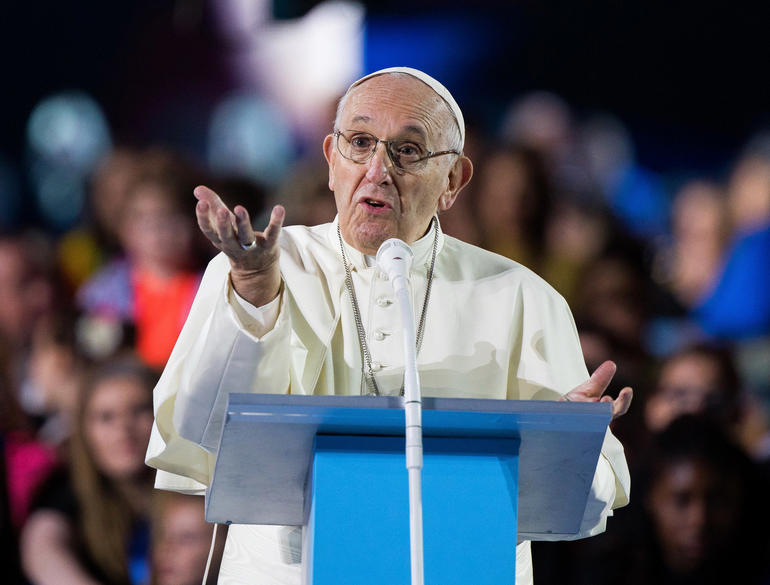The pontiff made his first papal trip to the Republic in August and his many protests and public pronouncements on the wrongdoing helped define the visit.
But a research study from Queen's University Belfast said only 30% of Irish people believed he did enough, although half of practising Catholics concurred.
Queen's University Belfast researcher Dr Gladys Ganiel said: "Francis' visit to Ireland has revealed a lot about how people in Ireland think about the Catholic Church.
"Even a pope as popular as Francis cannot distract from the widespread dismay about the way that the Church has handled clerical sexual abuse.
"At the same time, this survey shows clear evidence that Francis' pontificate has had a positive impact on a significant minority of people's perceptions of the Catholic Church, both since his visit to Ireland and since he became pope in 2013."
She said indifference was the main reason why attendance at some of the papal events, including the farewell Mass at Phoenix Park in Dublin, was lower than expected.
Dr Ganiel designed the survey, which received 840 responses. She is a research fellow from the Senator George J Mitchell Institute for Global Peace, Security and Justice at Queen's.
Key findings included:
- 31% agreed the visit had been "a healing time for victims and survivors of clerical sex abuse", 36% disagreed and 24% said neither/nor or had no opinion;
- 23% agreed the visit had been "a healing time for LGBTQI people and their families", 40% disagreed and 37% said neither/nor or had no opinion;
- 66% said their opinion of the Catholic Church has not changed since Francis became pope in 2013, with 22% saying their opinion had become more favourable;
- 50% agreed that Pope Francis's visit was good for the Catholic Church in Ireland and Ireland as a nation, and 75% of practising Catholics agreed with this statement;
- 80% did not attend any of the events surrounding the papal visit, 51% because they were simply not interested and 30% said they disagreed with how the Church has handled abuse.
For practising Catholics, 39% said the main reason why they did not attend any of the events was because the travel/walk was too difficult, 22% said they were not interested and 18% said they disagreed with how the Church handled abuse.
Dr Ganiel added: "For all the respondents except practising Catholics, indifference seems to have trumped anger about abuse as a reason for not attending - although abuse is still the next most significant factor."





